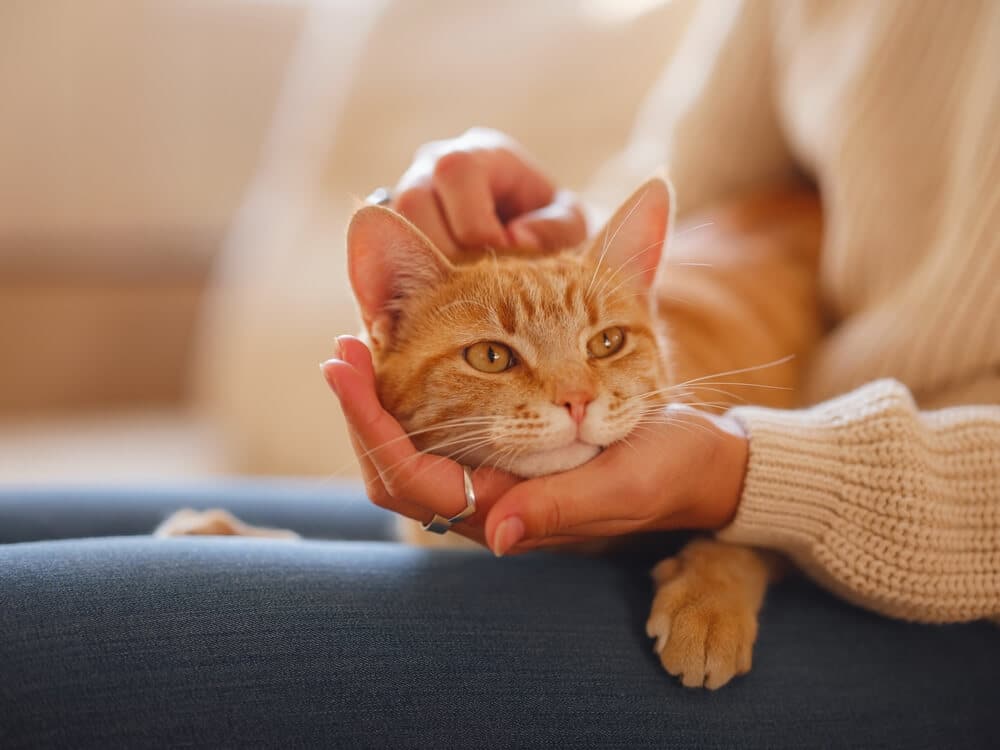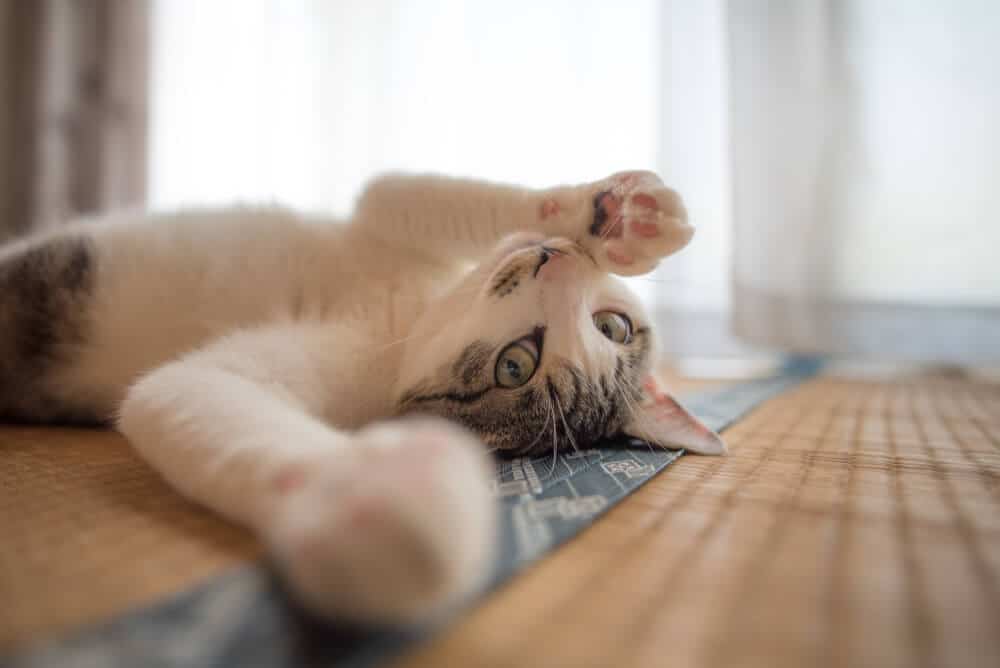
Are you an avid cat lover dreaming of bringing a furry companion into your HDB flat?
Will that day ever come?
Are cats allowed in hdb?
The policy on cat ownership in HDB flats has been a hot topic of discussion for years.
Currently, cats are not allowed due to hygiene, allergies, and safety concerns.
However, there’s a glimmer of hope on the horizon.
The government has been considering public opinions and feedback, considering the possibility of a change in HDB’s cat ownership policies.
Let’s dive into the current state of affairs, explore the potential benefits, and address the challenges ahead.
Get ready to discover the latest developments and envision a future where cats can roam freely in your HDB home!
Key Takeaways
| Key Takeaway | Information |
|---|---|
| Current Cat Ban Policy in HDB Flats | Cats are not allowed to be kept as pets in HDB flats in Singapore due to potential inconvenience caused by shedding fur and cats defecating or urinating in public areas. This policy aims to maintain the cleanliness and hygiene of HDB living environments. The ban has been in effect for many years. Cat enthusiasts in HDB flats are not allowed to keep cats as pets, but they have other housing options, such as private properties or landed homes, where cats may be allowed. |
| Exceptions to the Cat Ban Policy | Cats that were present in HDB flats before the ban was implemented are allowed to be kept by their owners. However, there are certain restrictions imposed on these cat owners, such as not allowing the cats to roam indiscriminately and ensuring responsible cat ownership. |
| Proposed Plans for Licensing | The authorities have proposed plans for licensing pet cats in HDB flats to ensure responsible ownership. This includes the requirement for cat owners to obtain a license for their pets and comply with regulations set by the authorities. |
| Importance of Sterilization | A stray cat sterilization program has been implemented in Singapore to manage the stray cat population and reduce the number of cats falling into the wrong hands. This helps control the cat population and minimizes the number of stray cats on the streets. |
| Potential Changes in HDB’s Stance | The government has been studying the feasibility of removing the ban on cats in HDB flats. If the regulations change, it could open up new opportunities for HDB residents to enjoy the companionship of a cat. Public opinion, effectiveness of measures, and resident feedback may influence any potential changes in HDB’s cat ownership policies. |
Overview of the Cat Ban Policy in HDB Flats in Singapore
What is the current cat ban policy in HDB flats?
In Singapore, cats cannot be kept as pets in HDB flats.
The Housing and Development Board (HDB) has banned cats due to potential inconvenience caused by shedding fur and cats defecating or urinating in public areas.
This policy aims to maintain the cleanliness and hygiene of HDB living environments.
When did the cat ban policy come into effect?
The cat ban policy in HDB flats has been in effect for many years.
It was implemented to address residents’ concerns and ensure harmonious living within HDB communities.
How does the cat ban policy affect cat owners?
The cat ban policy for cat enthusiasts who reside in HDB flats means they are not allowed to keep cats as pets in their homes.
However, other housing options exist, such as private properties or landed homes to which cats may be entitled.
Understanding the Current State of Cat Ownership in HDB Flats

How many HDB flats allow cat ownership?
Currently, no HDB flats allow cat ownership.
The cat ban policy applies to all HDB flats across Singapore.
Are there any exceptions to the cat ban policy?
While the general rule is that cats are not allowed in HDB flats, there are some exceptions.
Cats in HDB flats before the cat ban policy was implemented were permitted to be kept by their owners.
However, certain restrictions are imposed on these cat owners, such as not allowing the cats to roam indiscriminately and ensuring responsible cat ownership.
What are the requirements for keeping cats in HDB flats?
To be eligible for keeping cats in HDB flats, the cats must have been present before the cat ban policy was implemented.
In addition, cat owners must ensure that their cats do not cause inconvenience to their neighbors or the community.
This includes taking measures to prevent the cats from shedding fur and defecating or urinating in public areas.
The Debate on Allowing Cats in HDB Flats: Pros and Cons
What are the arguments for allowing cats in HDB flats?
Proponents of allowing cats in HDB flats argue that it would enable cat lovers to keep cats as pets without relocating to private properties.
They believe responsible cat ownership can minimize inconvenience and maintain a clean living environment.
What are the arguments against allowing cats in HDB flats?
On the other hand, opponents of allowing cats in HDB flats raise concerns about potential issues such as noise pollution, property damage, allergies, and conflicts between neighbors.
They argue that it may be difficult to control the actions of irresponsible cat owners and prevent cats from causing disturbances within HDB communities.
What are the potential benefits and drawbacks of lifting the cat ban policy?
If the cat ban policy in HDB flats were to be lifted, the potential benefits would include increased happiness among cat owners, reduced surrender rates to animal shelters, and the promotion of responsible pet ownership.
However, the drawbacks could consist of the challenges of enforcing responsible cat ownership and mitigating any negative impacts on HDB living environments.
Proposed Plans on Pet Cats: Licensing, Microchipping, and Responsible Ownership

What are the proposed plans for licensing pet cats in HDB flats?
The authorities have proposed licensing pet cats in HDB flats to ensure responsible ownership.
This includes the requirement for cat owners to obtain a license for their pets and comply with regulations set by the authorities.
How does microchipping contribute to responsible cat ownership?
Microchipping is one of the proposed measures to enhance responsible cat ownership.
Implanting a microchip in cats makes it easier to identify and locate lost or abandoned cats.
This helps to prevent cats from becoming strays and ensures that they are adequately cared for by their owners.
What responsibilities do cat owners need to fulfill?
Responsible cat owners have various responsibilities to fulfill.
These include providing proper nutrition and veterinary care for their cats, ensuring they are housed in suitable environments, and preventing any inconvenience or disturbances caused by their cats within the community.
Managing Pet and Community Cats in Singapore: Challenges and Solutions
What challenges are faced in managing pet and community cats?
Managing pets and community cats poses various challenges.
These challenges include the potential increase in the number of cats if the ban is lifted, ensuring responsible cat ownership, preventing the spread of diseases, and addressing potential conflicts between cat owners and non-cat owners.
What are the solutions to address these challenges?
To address these challenges, the government and relevant authorities can implement measures such as education programs on responsible cat ownership, enforcing regulations to prevent the abandonment or mistreatment of cats, and promoting the importance of sterilization to control the cat population.
What role do animal welfare groups play in managing cat-related issues?
Animal welfare groups play a crucial role in managing cat-related issues in Singapore.
They actively promote responsible cat ownership, organize sterilization programs for community cats, provide assistance and support to cat owners, and advocate for the overall welfare of cats and animals.
The Role of Government Agencies in Cat Welfare and Animal Management

What are the regulations set by HDB regarding cat ownership in flats?
HDB residents can keep cats in their flats, but specific regulations are in place to ensure responsible ownership.
Currently, cats are not allowed to roam indiscriminately within the HDB estate.
They should be kept indoors to prevent any nuisance or inconvenience to neighbors.
How does the Agri-Food & Veterinary Authority (AVA) regulate cat ownership in HDBs?
The Agri-Food & Veterinary Authority (AVA) plays a crucial role in managing and welfare of cats in HDBs.
They conduct regular inspections to ensure compliance with regulations and provide advice on responsible cat ownership.
Additionally, cat owners are encouraged to sterilize their pets to control the population of cats and minimize potential issues.
Are there any plans to change the regulations by 2023?
The possibility of keeping cats in HDB flats has been discussed in recent years.
In March 2023, the Minister for National Development, Tan Kiat How, said that the government is studying the feasibility of removing the ban on cats in HDB flats.
If the regulations change, it will open up new opportunities for HDB residents to enjoy the companionship of a cat.
Public Consultation Exercise and Survey Findings on Cats in HDBs
What were the findings from the public consultation exercise on allowing cats in HDBs?
In 2022 and 2023, the government conducted a public consultation exercise to gather feedback on allowing cats in HDB flats.
Most respondents expressed support for the legalization of cat ownership in HDBs.
They highlighted the benefits of cat companionship and emphasized the need for responsible ownership.
What do the survey findings reveal about the opinions of HDB residents on cat ownership in flats?
The survey findings revealed that HDB residents could allow cats in flats.
Many recognized the positive impact of cats on mental well-being and appreciated the bond that can be formed between a cat and its owner.
However, concerns were raised regarding potential issues such as noise, hygiene, and allergies.
How did the feedback obtained contribute to the current regulations?
The feedback obtained from the public consultation exercise played a crucial role in shaping the current regulations.
It provided insights into the concerns and aspirations of HDB residents.
The government considered these considerations when evaluating the feasibility of allowing cats in HDB flats.
Responsible Cat Ownership: Best Practices and Tips for Cat Owners in HDBs

What are the best practices for responsible cat ownership in HDB flats?
Responsible cat ownership starts with keeping cats indoors.
This ensures the cats’ safety and prevents them from causing inconvenience to neighbors.
Additionally, regular visits to the veterinarian, proper grooming, and ensuring cats are sterilized are all essential aspects of responsible ownership.
How can cat owners ensure that their cats do not cause inconvenience to their neighbors?
Cat owners can take several steps to ensure their pets do not cause inconvenience or discomfort to their neighbors.
Keeping cats indoors eliminates the possibility of noise disturbances or encounters with other animals.
Regular grooming and proper litter box maintenance can also help prevent unpleasant odors.
What are some tips for keeping cats happy and stimulated in an indoor environment?
Keeping cats entertained and stimulated indoors is essential for their well-being.
Providing scratching posts, interactive toys, and regular playtime can help keep cats mentally and physically active.
Creating vertical spaces for them to climb and explore can also mimic their instincts.
Cat Welfare Society and Other Animal Welfare Groups: Advocacy and Initiatives
What is the role of the Cat Welfare Society (CWS) in advocating for cat ownership in HDBs?
The Cat Welfare Society (CWS) plays a significant role in advocating for the welfare of cats in HDB flats.
They provide resources and advice to cat owners, promote responsible ownership, and organize sterilization programs to control the cat population.
The CWS also collaborates with other animal welfare groups to amplify their impact.
What initiatives have the CWS and other animal welfare groups taken to promote the welfare of cats in HDBs?
The CWS and other animal welfare groups have implemented various initiatives to promote the welfare of cats in HDBs.
These include public awareness campaigns on responsible ownership, school education programs, and community outreach efforts to support and assist cat owners.
How can individuals get involved in supporting these advocacy and initiatives?
Individuals can support the advocacy and initiatives of the CWS and other animal welfare groups by volunteering their time, making donations, or participating in fundraising events.
By actively contributing to these organizations, individuals can play a part in improving the welfare of cats in HDBs.
Impact on Neighbourly Relations: Addressing Concerns and Disamenities Issues

What are the common concerns that arise from cat ownership in HDBs?
Concerns from cat ownership in HDBs include noise disturbances, odors, hygiene issues, and potential allergies.
While most cat owners are responsible and take necessary measures to address these concerns, they must be managed to maintain healthy neighborly relations.
How can HDB residents address these concerns and maintain good relations with their neighbors?
HDB residents can address these concerns by actively practicing responsible cat ownership.
This includes keeping cats indoors, regularly grooming them, and maintaining litter boxes.
Being considerate of neighbors’ concerns and promptly addressing any issues can go a long way in maintaining good relations.
What measures can be taken to minimize disamenities caused by cats in HDBs?
To minimize disamenities caused by cats in HDBs, cat owners can take proactive measures such as keeping their cats indoors and regularly grooming them to reduce shedding fur.
Additionally, participating in the stray cat sterilization program and encouraging responsible ownership within the community can help manage the cat population and ensure a harmonious living environment.
The Possibility of Legalization of Cat Ownership in HDB Flats
Could cat ownership in HDB flats be allowed in the future?
One of the most frequently asked questions among pet-loving Singaporeans is whether cats are allowed in HDB flats.
Currently, the Housing and Development Board (HDB) does not permit cat ownership in its flats, which has been the case since 1989.
However, there have been talks and discussions about the potential legalization of cat ownership in HDB flats.
What are the current restrictions on cat ownership in HDB flats?
HDB regulations state that only certain types of pets are allowed in their flats, such as fish and birds.
Dogs are also permitted but must be of a specific size and breed.
Unfortunately, cats have been banned from HDB flats for several reasons.
One concern is that cats tend to shed fur, which may cause cleanliness issues and allergies for some residents.
There are also concerns about cats falling from heights in high-rise buildings.
Are there any plans to change the regulations regarding cats in HDB flats?
While the current regulations do not allow cats in HDB flats, there have been discussions about potential changes in the future.
The government has recognized the growing number of people who keep cats as pets and the need to address their housing needs.
The Agri-Food and Veterinary Authority (AVA) has been working with HDB to explore allowing cats in HDB flats under certain conditions.
Sterilization Programmes and Reducing the Stray Cat Population in Singapore

What is the role of sterilization programs in managing the stray cat population in Singapore?
Singapore has implemented a stray cat sterilization program to manage the homeless cat population and reduce the number of cats falling into the wrong hands.
This program aims to sterilize community cats with the help of the Animal and Veterinary Service (AVS) to prevent them from reproducing.
By controlling the cat population, the number of stray cats on the streets is hoped to decrease over time.
How effective are these sterilization programs?
Sterilization programs have proven effective in controlling the stray cat population in many countries, including Singapore.
Ensuring community cats are sterilized can keep their numbers in check, preventing exponential growth.
This approach also addresses the concerns of cat owners by reducing the chances of unwanted kittens and alleviating the burden of managing many cats.
What other measures are taken to reduce the number of stray cats in Singapore?
In addition to sterilization programs, Singapore has implemented various measures to reduce the number of stray cats.
These include educational campaigns to promote responsible pet ownership and encourage people to adopt cats from animal shelters instead of buying from breeders.
There are also efforts to promote the microchipping and licensing of pet cats, which helps to ensure that cats are correctly identified and reduces the chances of abandonment or mistreatment.
Pets in HDB Flats: Comparing Cats to Other Animals and Their Legality
Are there any other pets allowed in HDB flats besides cats?
While cats are currently not allowed in HDB flats, other types of pets are permitted.
HDB regulations allow residents to keep small animals such as fish and birds as pets.
Dogs are also allowed, but specific size and breed restrictions are in place.
These regulations aim to strike a balance between allowing pet ownership and ensuring the well-being of both the residents and the animals.
What are the regulations regarding other types of pets in HDB flats?
Residents who wish to keep dogs in HDB flats must ensure that the dogs are licensed and microchipped.
This helps to enforce responsible pet ownership and facilitates the identification of dogs in case they go missing.
The regulations also specify the maximum number of dogs allowed per household to prevent overcrowding.
Why are cats specifically banned in HDB flats?
The ban on cat ownership in HDB flats is primarily due to concerns about cleanliness, allergies, and the safety of the residents and the cats.
Cats tend to shed fur, which may accumulate in the common areas of the flats and cause hygiene issues.
Additionally, there have been cases of cats falling from heights in high-rise buildings, which poses a risk to both the cats and the people living below.
Cat Ownership Policies in Private Housing versus Public Housing

Are there any differences in cat ownership policies between private housing and public housing?
There are notable differences in cat ownership policies between private and public housing in Singapore.
In private accommodations, such as condominiums and landed properties, cat ownership is generally allowed, subject to the rules and regulations set by the management or the individual owners.
However, cats are currently not allowed in public housing, mainly HDB flats.
Why are cats allowed in private housing but not in HDB flats?
The differences in cat ownership policies can be attributed to the different management and ownership structures of private housing and HDB flats.
In private housing, residents have more autonomy over pet regulations and policies.
They can decide whether to allow cats based on their preferences and the specific rules the management or owners set.
On the other hand, HDB flats are governed by a centralized authority, the HDB, which sets uniform regulations across all its flats.
What are the reasons behind the different regulations for cat ownership?
The different regulations for cat ownership in private housing and HDB flats are rooted in the specific concerns and considerations of each type of housing.
Private housing typically has more prominent spaces and facilities that cater to pets’ needs, including cats.
In contrast, HDB flats have limited space.
They are shared by multiple households, which may make it more challenging to accommodate pets and manage the potential issues associated with cat ownership.
Future Outlook: Potential Changes to HDB’s Stance on Cat Ownership
Is there a possibility of HDB changing its stance on cat ownership?
While the ban on cat ownership in HDB flats is currently in place, HDB may change its stance.
Over the years, there has been a growing understanding of the importance of pets in the lives of many Singaporeans, including cats.
The government has been responsive to its residents’ changing needs and aspirations, and there have been ongoing discussions and reviews regarding pet ownership regulations in HDB flats.
What factors could influence a change in HDB’s cat ownership policies?
Several factors could influence a change in HDB’s cat ownership policies.
Public opinion and feedback play a significant role in shaping policies.
If there is an intense desire and support from HDB residents to allow cats in their flats, it could lead to a reassessment of the existing regulations.
The effectiveness of measures such as sterilization programs and responsible pet ownership initiatives may also be considered, as these can address some concerns associated with cat ownership in HDB flats.
How would potential changes affect cat owners in HDB flats?
If there are potential changes to HDB’s cat ownership policies, it would be a significant development for cat owners in HDB flats.
It would mean that HDB residents can legally keep cats as pets, provided that certain conditions and regulations are met to ensure the well-being of the residents, the cats, and the overall living environment.
This could bring great joy and relief to many cat lovers facing limitations in pursuing their passion for cat ownership in HDB flats.
Conclusion
In conclusion, the cat ban policy in HDB flats in Singapore has been in effect for many years, preventing cat enthusiasts from keeping cats as pets in their homes.
However, there have been discussions and public consultations on the possibility of allowing cats in the future, considering the growing number of cat lovers and their desire for companionship.
While the ban remains in place, there are exceptions for cats present before the policy was implemented, with restrictions on responsible ownership.
Various initiatives, such as sterilization programs and responsible ownership campaigns, are being undertaken to address concerns and manage the stray cat population in Singapore.
Animal welfare groups, including the Cat Welfare Society (CWS), play a vital role in promoting responsible cat ownership and advocating for the welfare of cats.
Frequently Asked Questions
Are cats allowed in HDBs?
No, cats are not allowed in HDB flats.
Can I keep a cat in my HDB flat?
No, HDB residents cannot keep cats as pets.
What are the rules regarding cats in HDB flats?
The Housing and Development Board (HDB) has not allowed cats to be kept in HDB flats since 1989.
Why are cats not allowed in HDB flats?
The main concern is that cats can be easily transmitted through cats to people.
Singapore has been rabies-free since 1960, and the HDB only acts against errant cat owners whose cats are a public nuisance.
Can I keep community cats with AVS approval?
The Agri-Food & Veterinary Authority of Singapore (AVA) allows residents to keep community cats with AVS approval.
What is the stray cat sterilization program?
The AVA implements the stray cat sterilization program to control the cat population and prevent the spread of diseases.
Can dogs be licensed as community cats?
No, only cats can be licensed as community cats.
Can pet cats in HDB flats be microchipped?
Yes, pet cats in HDB flats can be microchipped.
This allows for proper identification and easier tracking of lost cats.
Is licensing and microchipping the cats mandatory?
Yes, licensing and microchipping cats in HDB flats is mandatory under the legislation of pet cats.
What are the penalties for keeping cats in HDB flats?
The penalties for keeping cats in HDB flats without approval include fines and possible legal action.




















